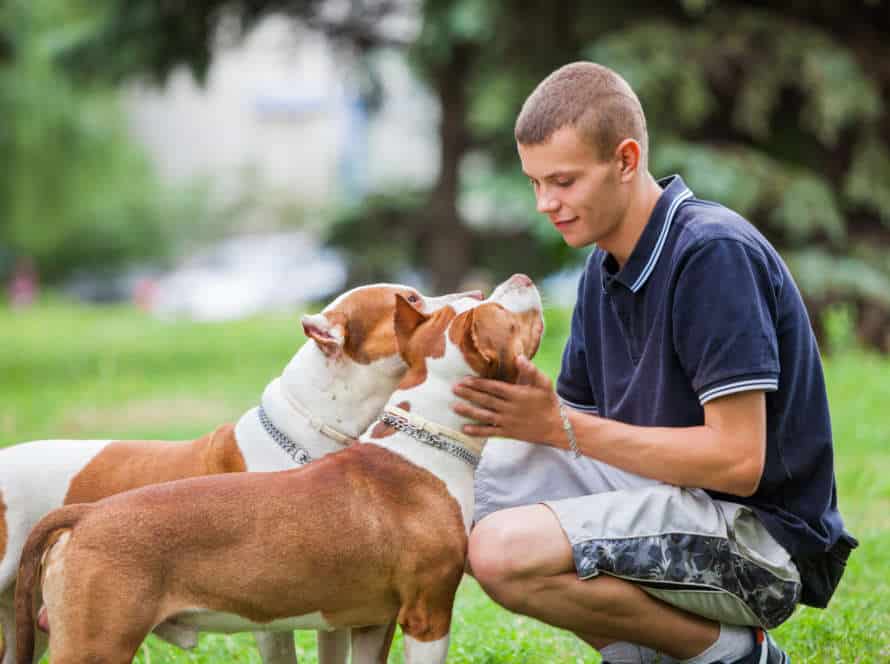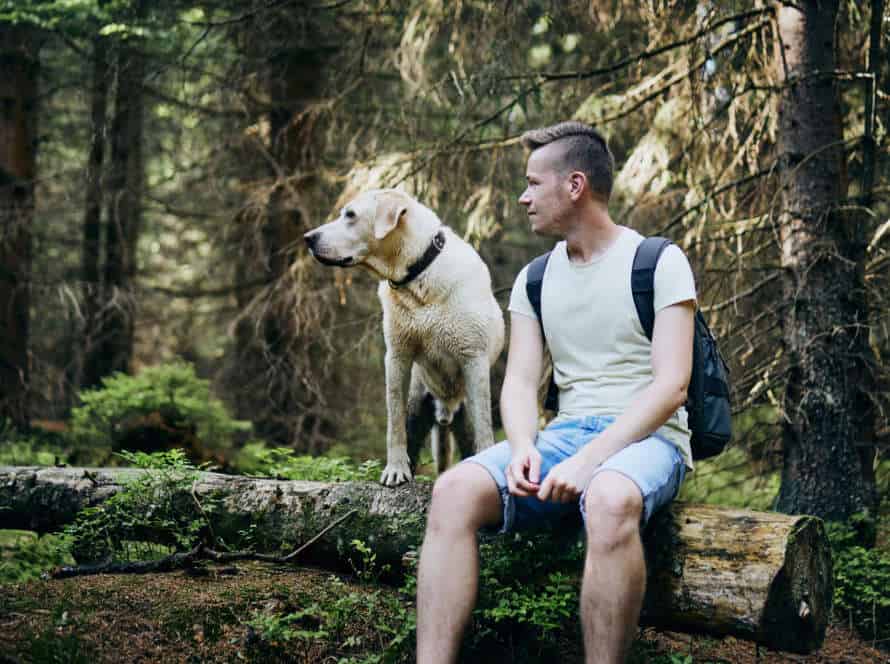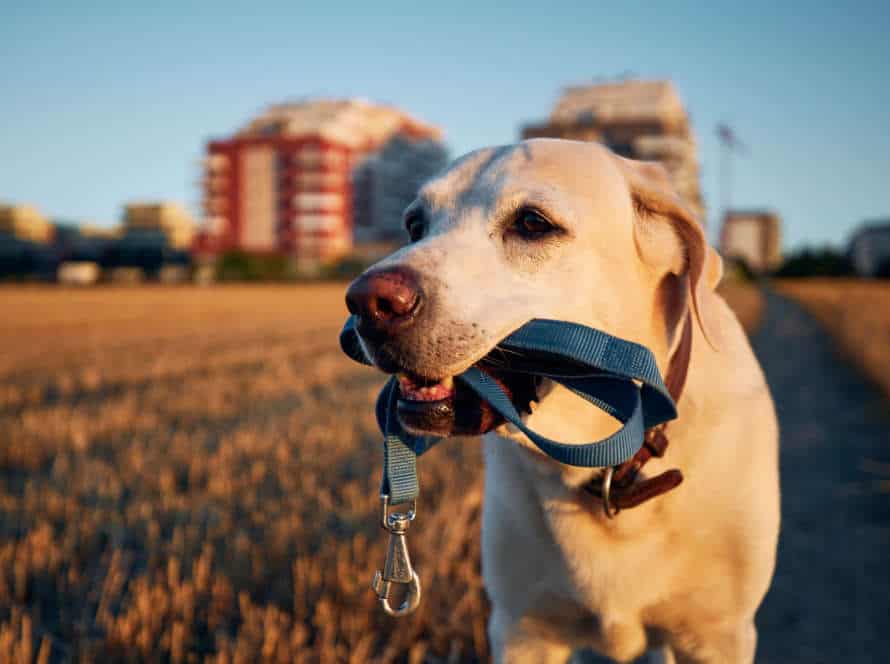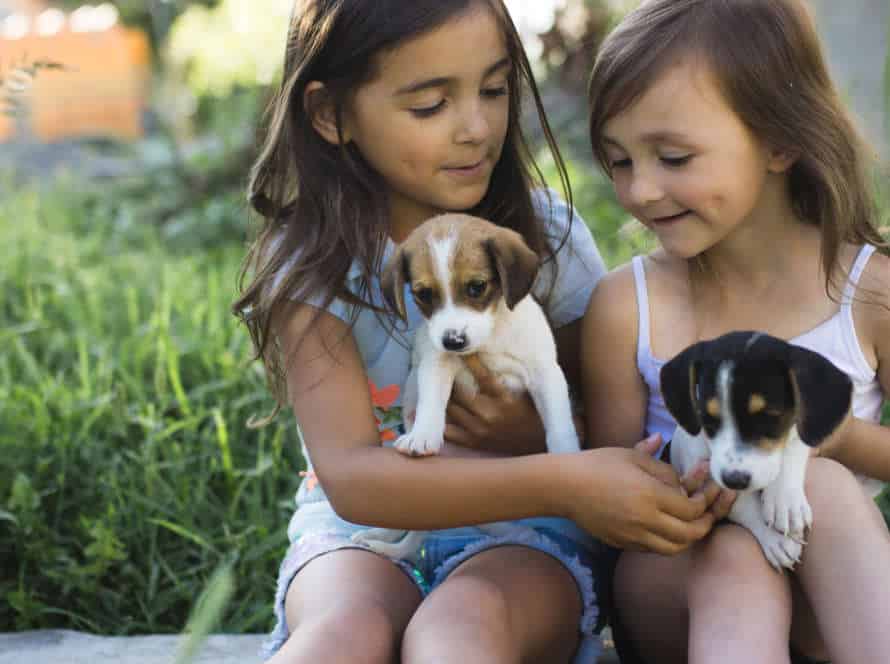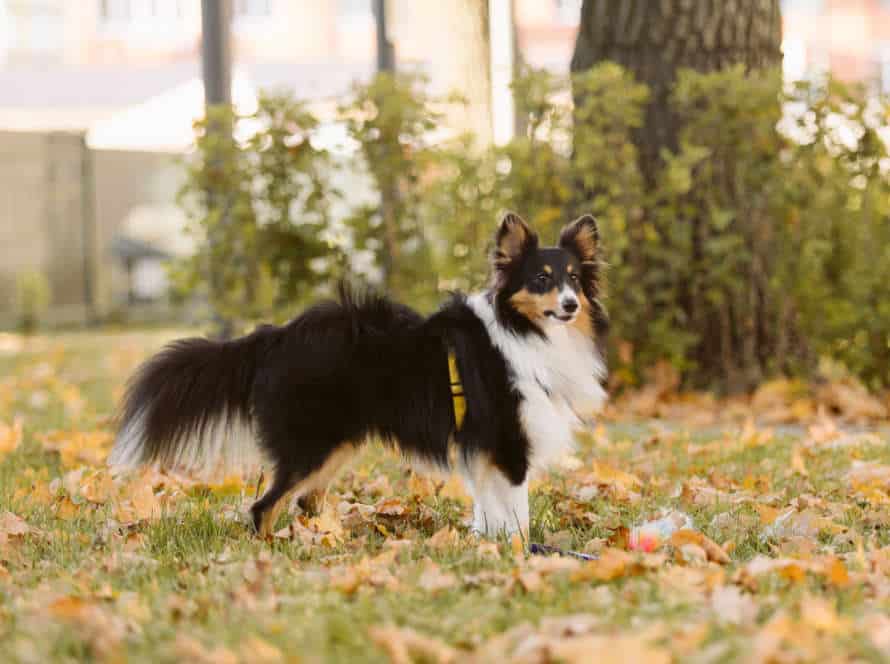Overcoming Socialization Hurdles in Adult Dogs
Adult pup socialization can be tough. But, with persistence, patience and the correct technique, you can beat any socialization hurdles for adult dogs.
To socialize your adult pup, expose them to different people, animals and environments in a positive way. Here are some good techniques:
- Reward them with treats, praises or playtime when they demonstrate positive behaviors or responses.
- Start with low-stress environments and slowly increase exposure to new experiences.
- Get help from a pro! A dog trainer can help guide you and your pup along the socialization process.
- Be consistent and patient. This way, you can improve their behavior and overall well-being. Pro tip: Begin small and gradually increase your pup’s comfort level with new experiences to avoid overburdening them.
Understanding Socialization in Adult Dogs
Socializing and familiarizing your pup with a new environment or experience is called acclimation. It’s key to remember that socialization is an ongoing activity. Even adult canines require proper socialization. Knowing the special needs of adult pooches and how to assist them in socializing can seem intimidating. This article will cover the advantages of socializing adult doggos and the steps you can take for a simpler process.
Importance of Socialization
Socialization is very important for adult dogs to have a content life. It helps them to communicate with other dogs, animals, and people in a good way. Here are some of the benefits:
- Improved behavior: Socialization makes adult dogs learn better behavior, cutting down the chances of fear, worry, or anger.
- Better communication: It also helps them to talk better with others.
- Less stress: It helps them feel more relaxed in new places, avoiding negative actions.
Although it may be difficult to teach adult dogs to socialize, it is possible. Slowly introducing them to different places and activities, using positive rewards, and asking for help from an expert can make the process easier.
Tip: Socialization should begin as soon as possible for dogs, but it’s never too late to start.
Socialization Process for Adult Dogs
Socializing adult dogs can be tricky. Yet, it’s key to their health and cheerfulness. The socialization process needs exposing your dog to different people, animals, and places. It also means teaching them how to act rightly and calmly in various situations.
Here’s how to get it done:
- Introduce your dog to new people, animals, and places gradually.
- Reward them for good behavior by using positive reinforcement techniques.
- Don’t make your dog stay in uncomfortable situations. Notice their body language for signs of distress.
- If your pup has missed the significant socialization period as a pup, get help from a professional dog trainer or animal behaviorist.
Patience, consistency, and proper training can help adult dogs beat socialization problems. They can then form positive and healthy relationships with people and other animals.
Behavioral Issues Due to Lack of Socialization
Behavioral issues in adult dogs due to lack of socialization can be fear, anxiety, and aggression. Understanding socialization is key to overcoming these issues.
Socialization involves exposing dogs to people, animals, and environments during their early stages to build skills and adaptability. Adult dogs who didn’t get proper socialization may be fearful or anxious towards new things.
It is possible to socialize adult dogs with patience, time, and help. Introducing them to new people, animals, and environments can help them overcome their fears and anxieties. Positive reinforcements can also help in building confidence and reducing anxiety.
Every dog is unique, so socialization hurdles may take time and persistence. Get help from a professional dog behaviorist if needed.
Pro tip: Socialize puppies early to stop behavioral issues in adulthood.
Identifying Socialization Hurdles in Adult Dogs
Adult dogs often have socialization hurdles. To create a safe and comfy environment, you must identify & address them. This will help with successful socialization. Types of hurdles and how to address? Let’s discuss!
Fear and Anxiety
Fear and anxiety are common for dogs when meeting new people, pets, or environments. Adult dogs can struggle to socialize due to bad past experiences or lack of training. Identifying Socialization Hurdles in Adult Dogs is key to helping them feel comfortable.
Common hurdles include:
- Aggression towards other dogs
- Excessive barking or fleeing when meeting people or pets
- Crouching or wagging tail between legs
- Avoiding eye contact
- Looking uncomfortable
To overcome these hurdles, start slow and positive. Give treats and rewards for good behavior. Controlled, gradual exposure can help with anxiety and fear. Socializing is important for your dog’s mental health and lifestyle.
Aggression
Aggression is a common problem for dog owners. It can be caused by a lack of socialization in adult dogs. To fix this, you need to identify the issues and work on them.
Common hurdles for adult dog socialization are:
- Fear: Some dogs can become aggressive when faced with new people, situations, or dogs.
- Lack of socialization: Dogs that haven’t been exposed to new people or experiences during their early development will struggle with socialization later.
- Resource guarding: Dogs may act aggressively while protecting their food, toys, or bed.
- Trauma: Past trauma can cause dogs to be aggressive towards certain people or situations.
To treat aggression in adult dogs, you need to find the root cause and use behavior modification, positive reinforcement, and desensitization exercises. It’s best to get help from a professional.
Shyness and Timidity
Shyness and timidity are two common issues when it comes to socializing adult dogs. Shy dogs are often scared of new people, animals, and environments. Timid dogs, on the other hand, are lacking in confidence and may be hesitant to socialize.
Here are some tips to help your dog get over these hurdles:
- Start small. Gradually expose your dog to new people, animals, and environments in a controlled and positive manner.
- Use treats and positive reinforcement. Reward your pup with treats and praise for any positive and brave behaviors.
- Socialize with other dogs. Arrange playdates with other well-socialized dogs to help your pup learn social cues and build confidence.
- Consult with a professional. An experienced dog trainer or behaviorist can help you create a socialization plan specifically created for your pooch.
Overcoming Socialization Hurdles in Adult Dogs
Socialization is essential when it comes to training and raising a pup. It affects how a pup interacts with its environment. If an adult dog has missed out on socializing during its puppyhood or adolescence, it will find it harder to be introduced to new people, animals and environments. Thankfully, it’s still possible to socialize an older dog. Here, we’ll explore the obstacles associated with it and how to overcome them.
Positive Reinforcement Training and Treats
Positive reinforcement training is a great way to help adult dogs overcome socialization hurdles. Treats are a key element of this process.
How it works: Positive reinforcement rewards desired behaviour with a treat, encouraging the behaviour to be repeated.
When socializing an adult dog, use treats to reward good behaviour around other dogs and people.
For example, give a treat if your dog shows interest in a stranger or another dog and is calm and friendly.
Also, if your dog is anxious in new surroundings, offer treats and praise for exploring.
By using positive reinforcement and treats, dogs learn that good behaviour leads to a positive experience. This makes socialization a much more enjoyable process for both dogs and owners.
Professional Dog Training
Tackling socialization difficulties in adult canines can be a tough challenge for professional dog trainers. It takes patience, commitment and a deep comprehension of the pup’s exclusive needs and temperaments.
Here are some tips to assist professional dog trainers in helping adult dogs jump over socialization hurdles:
- Go Slow: Take the time to observe the dog’s conduct and steadily expose them to new scenarios and stimulants.
- Rewards: Promote great behaviour with plenty of rewards, for instance goodies, playthings, and adoration.
- Uniformity: Uphold a consistent ritual and tutoring approach to assist the pup feel more secure and contented.
- Socialization Periods: Organize standard socialization intervals with other pups and people to help the doggy defeat its concerns and worry.
With the right direction and much patience, professional dog trainers can assist adult dogs conquer their socialization barriers and live joyous and gratifying lives.
Confidence Building Exercises
Confidence-building exercises can help adult dogs get over any socialization issues. Exercises like these can boost their self-esteem, and reduce fear or anxiousness when it comes to new situations.
Here are some activities to try:
- Boot camp-style training: Praise and reward your pup when they try something new, learn new abilities, and conquer any fears.
- Agility training: This will help your dog feel more at ease around unknown obstacles and increase their physical confidence.
- Positive reinforcement socialization: Bring your pup to different places, introduce them to other animals and people, and give them treats for good behavior.
- Body awareness exercises: Teach your pup how to balance on a ball, and other exercises like that, to give them control over their body and build up confidence.
Be patient and remain consistent with these exercises, and if needed, reach out to professionals for help.
Tips for Successful Socialization of Adult Dogs
Adult dogs can find socialization tricky. Negative past experiences may have a negative effect on their ability to interact. Nonetheless, socialization is still achievable. Utilize the correct methods and your pup can become the amiable and social creature that you know it can be. Here are some top tips for successful socialization of adult dogs:
Patience and Consistency
Patience and consistency are essential for a successful socialization of adult dogs and overcoming socialization obstacles. Here are some tips:
- Begin gradually and be patient: Adult dogs may take more time to adapt to new people or situations. Try starting with low-stress activities like walks in relaxed parks or introducing them to calm dogs.
- Use positive reinforcement: Praise and reward your dog when they show good behavior during socialization. This will make the experience more enjoyable for them and boost their confidence.
- Consistency is essential: Socialization should be a continuous and ongoing process, with your dog being exposed to various experiences and people on a regular basis.
- Get professional help if required: If your dog faces extreme socialization issues or behavioral problems, consult a professional dog trainer or behaviorist.
Remember, patience and consistency are the key to successfully socializing your adult dog and helping them overcome socialization hurdles.
Gradual Exposure
Gradual exposure is fundamental for socializing adult dogs, especially if they have not had prior chances for socialization or have formed social anxieties or fears.
Here are some tips for a successful socialization process:
- Start in low-stress conditions and with low-intensity stimuli. Then, slowly increase intensity.
- Choose positive experiences and interactions with other dogs and people. This will help build trust and reduce anxiety.
- Treats, toys, and praise are great ways to reinforce positive interactions.
- Don’t force interactions or put your dog in situations that are too difficult.
- For a tailored plan, get help from an experienced dog trainer or behaviorist. They can take your dog’s temperament, past, and needs into account.
Remember, socialization is a continuous process. Your dog’s needs and behavior may change. Be patient, consistent, and flexible. With this approach, you’ll see results eventually.
Safe and Controlled Environment
For successful adult dog socialization, a secure and regulated setting is key. Here are some tips for setting up such an environment:
- Step-by-step: Let your pup encounter new people, animals, and scenarios in short stints.
- Monitored contact: Ensure safe and managed contact between your dog and new people/animals. Supervise and use positive reinforcement.
- Praise and rewards: When your pup responds positively to your socialization efforts, reward them with praise and treats.
- Persevere: Socialization may go slowly, so be persistent and don’t rush your dog into unknown surroundings.
By providing adult dogs with a secure and controlled atmosphere, they can form positive relationships with other animals and humans, while learning proper behaviors.
Conclusion and Key Takeaways.
To summarize, adult dogs can overcome socialization issues. It takes patience, consistency, and positive reinforcement training. Every pup is unique and requires different strategies. Start socializing as early as possible. It’s never too late to start. Offer exposure to new people, dogs, places, and experiences. Observe your dog’s body language and reactions. Make sure they are comfortable. Positive reinforcement, proper leash handling, and gradual exposure are essential. Patience, consistency, and positive reinforcement make sure your dog is a well-adjusted, social member of society.
Frequently Asked Questions
1. Why is socialization important for adult dogs?
Socialization is important for adult dogs as it helps them to develop confidence, reduce anxiety, and build positive relationships with other animals and humans.
2. What are some common obstacles to socializing adult dogs?
Some common obstacles to socializing adult dogs include fear or aggression towards other animals or humans, lack of exposure to new experiences, and past traumatic experiences.
3. How can I help my adult dog overcome their fear of other animals or humans?
You can help your adult dog overcome their fear by slowly introducing them to new experiences in a positive and controlled manner, using positive reinforcement techniques, and seeking the help of a professional trainer if needed.
4. Can an adult dog be socialized successfully?
Yes, adult dogs can be socialized successfully with patience, consistency, and positive reinforcement techniques. However, it may take more time and effort than socializing a puppy.
5. Is it too late to socialize my adult dog?
No, it is never too late to socialize an adult dog. While it may be more challenging than socializing a puppy, adult dogs can still learn to socialize and build positive relationships with other animals and humans.
6. What can I do to maintain socialization skills for my adult dog?
To maintain socialization skills for your adult dog, it is important to continue to expose them to new experiences, provide opportunities for positive social interactions, and reinforce good behavior through positive reinforcement techniques.


